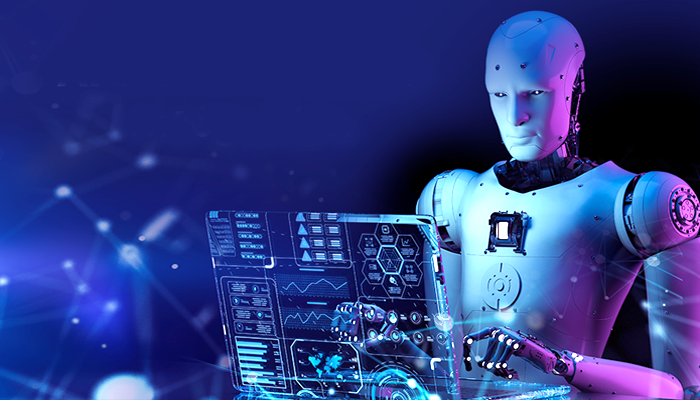The Convergence of Blockchain and AI: Transforming Digital Ecosystems
The integration of blockchain and artificial intelligence (AI) is revolutionizing the tech landscape, with profound implications for industries such as finance, healthcare, and supply chain management. By combining blockchain’s decentralized security with AI’s advanced data-processing capabilities, this synergy enables more efficient, transparent, and secure digital ecosystems. Let’s explore how blockchain and AI complement each other, their key applications, and the challenges involved.
Why Blockchain and AI Are a Game-Changing Combination
Enhanced Data Security and Integrity
Blockchain’s architecture ensures data integrity by distributing information across multiple nodes, making it highly resistant to tampering. AI, which depends on vast datasets to make accurate predictions, often struggles with data security concerns. By integrating AI with blockchain, organizations can leverage verified datasets, enhancing trust in AI-driven decisions while ensuring data authenticity.
Transparent and Decentralized AI Decision-Making
AI algorithms often operate as “black boxes,” where decision-making processes lack transparency. Blockchain can help solve this issue by recording each step of an AI’s decision-making process on an immutable ledger. This level of accountability is particularly valuable in sectors such as finance and healthcare, where AI-driven decisions directly impact individuals.
Efficient Data Sharing and Monetization
Blockchain enables users to maintain control over their data while allowing secure access to AI models. This fosters a fair data-sharing ecosystem where individuals can monetize their data without compromising privacy. This approach is especially crucial in healthcare, where patient data can fuel medical advancements while remaining under the patient’s control.
Key Applications of Digital Integration
Fraud Detection and Cybersecurity
AI-powered fraud detection systems excel at identifying unusual patterns but can be susceptible to sophisticated cyberattacks. Blockchain strengthens these systems by providing a transparent, tamper-proof ledger of transactions, allowing AI algorithms to detect fraudulent activity with greater accuracy and reliability.
Supply Chain Optimization
The combination of AI and blockchain is transforming supply chain management by enhancing real-time tracking and predictive analytics. Blockchain ensures an immutable record of every transaction and product movement, while AI analyzes this data to optimize logistics, predict potential disruptions, and minimize waste. This results in a more transparent and efficient supply chain.
Healthcare Data Security and Personalized Treatment
Blockchain secures patient records, granting individuals control over their medical data. AI can then analyze these records to detect patterns and suggest personalized treatment plans without compromising privacy. This integration paves the way for improved patient care while ensuring robust data security.
Decentralized Finance (DeFi) and Smart Financial Systems
The financial industry is rapidly embracing decentralized finance (DeFi), where blockchain-powered platforms provide financial services without intermediaries. AI enhances DeFi by automating asset management, analyzing market trends, and offering personalized financial advice, all while maintaining transparency and security.
For more insights into DeFi, check out our blog on How Token Standards Impact DeFi.
Challenges in Integrating Blockchain and AI
Despite the immense potential of blockchain and AI, several hurdles must be addressed:
- Scalability Issues – Blockchain networks often have slower transaction speeds, while AI requires rapid data processing. Bridging this gap is crucial for seamless integration.
- Data Privacy and Ownership – Blockchain’s transparency contrasts with AI’s need for extensive datasets, making it challenging to balance privacy and usability. Techniques like federated learning are emerging as potential solutions but require further refinement.
- Interoperability – Many blockchain and AI frameworks remain fragmented, lacking standardized protocols for seamless integration. Developing common frameworks is essential for widespread adoption.
For a deeper understanding of token scalability, read Choosing the Right Token Standard.
The Future of Blockchain and AI Synergy
As advancements continue, we can expect groundbreaking innovations in areas like decentralized identity, automated compliance, and green computing. The fusion of blockchain’s trust mechanism with AI’s analytical power will unlock new possibilities, making digital systems more secure, efficient, and intelligent.
For an overview of the latest trends in token development, explore DeployTokens Blog.
Conclusion
Blockchain and AI are two of the most transformative technologies of our time. Their integration holds immense potential to create transparent, secure, and highly efficient digital ecosystems. While challenges remain, ongoing advancements will address these barriers, paving the way for a future where they work in harmony to solve real-world problems across industries.
Embracing this powerful combination today will position businesses and industries at the forefront of the next wave of technological innovation.
To learn more about blockchain-powered solutions, visit DeployTokens.com and start your journey today!
